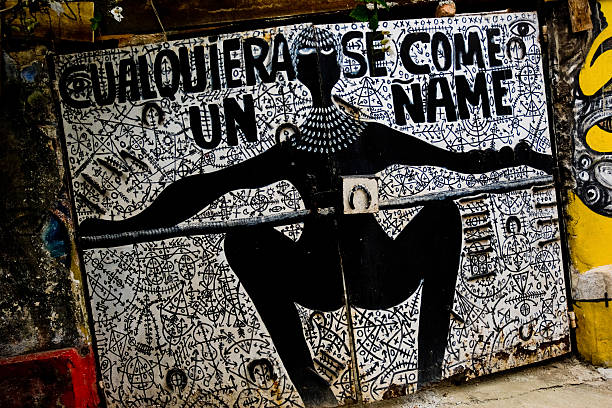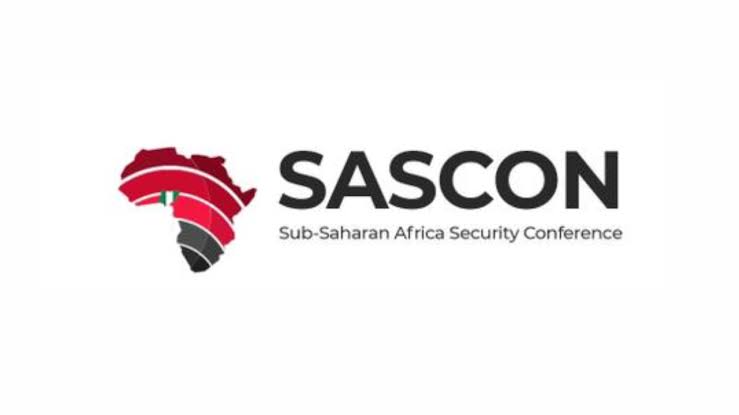Will Privatisation Fix the Oil Mess?
With the Nigerian National Petroleum Company Limited’s refineries bearing marks of failure, waste, corruption, and deceit for many years despite whopping financial investments on Turn-Around Maintenance, Africa’s richest man, Aliko Dangote, has advocated the sale of the four facilities in Port Harcourt, Warri, and Kaduna, reports
P
enultimate week, the sale of the four refineries belonging to the Nigerian National Petroleum Company Limited (NNPC) again came to the front-burner when the President/Chief Executive of Dangote Industries Limited, Alhaji Aliko Dangote, stressed the need for the offloading of the facilities. Dangote hinged his call on the huge financial waste associated with the refineries located in Port Harcourt, Warri, and Kaduna, with a combined 450,000 barrels per day (bpd) nameplate processing capacity.
For many years, the four refineries have failed to add value to the company and country as monies were being wasted on their Turn-Around Maintenance (TAM), without positive result. The idle employees at these refineries continue to earn fat salaries, enjoy promotion and all sorts of allowances and benefits that are meant for active workers of an organisation.
The non-functionality of the NNPC refineries plunged Nigeria into becoming a net importer of petroleum products for decades, especially petrol, with huge subsidy payments by the government, and high exposure of the national oil company to debts to foreign oil traders.
The unpalatable story about NNPC and its refineries has always fuelled the call for its sale to end the continuous waste and corruption associated with the facilities.
The federal government, through the NNPC, recently embarked on about $3 billion rehabilitation programme aimed at reviving the country’s ailing refineries in Port Harcourt, Warri, and Kaduna.
Despite the substantial investment, the process has faced significant hurdles, including funding delays, technical setbacks, and complications arising from outdated infrastructure.
In late November 2024, the Port Harcourt refinery was recommissioned following a $1.5 billion overhaul, initially touted to run at 70 per cent capacity, but the refinery continued to struggle until it was shut down in May 2025.
Similarly, information on the Warri refinery remains hazy, but it was said to have resumed operations at 60 per cent capacity on December 30, 2024, following an $897.6 million rehabilitation.
This plant is believed to be inactive, following a shutdown earlier in the year, due to a critical fault in the Crude Distillation Unit (CDU) main heater—a major safety risk that forced a complete halt in processing. The NNPC has said work is ongoing on the Kaduna refinery.
Dangote is somebody who now understands what it takes to build, maintain, and run a petroleum refinery efficiently, profitably, and sustainably, having successfully built and put to operation a 650,000 barrels per day refinery. He has doubted the possibility of NNPC’s Port Harcourt, Warri, and Kaduna refineries functioning again.
Addressing members of the Global CEO Africa from the Lagos Business School, who paid a visit to the $20 billion Dangote refinery penultimate week, the billionaire investor put the cumulative spending on rehabilitating the four NNPC refineries so far at $18 billion without any good result.
Dangote likened the turnaround maintenance of the refineries by the NNPC to trying to modernise a car built 40 years ago, when technology has advanced.
According to Dangote, the 650,000-capacity refinery he built after the government of late Umar Yar’Adua aborted his acquisition of the government refineries now has over 50 per cent of its output dedicated to Premium Motor Spirit (petrol), saying that even government refineries committed just 22 per cent of their production to petrol.
Dangote recalled how he and his team had to return the nation’s refineries to Yar’adua, a few months after former President Olusegun Obasanjo left office in 2007.
According to him, the former managers of the refinery had told Yar’Adua that Obasanjo sold the facilities below their costs as a parting gift to him and his colleagues.
“The refineries that we bought before, which were owned by Nigeria, were doing about 22 per cent of PMS. We bought the refineries in January 2007. Then we had to return them to the government because there was a change of government. And the Managing Director at that time convinced Yar’Adua that the refineries would work.
“They said they just gave them to us as a parting gift or so. And as of today, they have spent about $18billion on those refineries, and they are still not working. And I don’t think, and I doubt very much if they will work,” he said.
“(The turnaround maintenance) is like you trying to modernise a car that was built 40 years ago, when technology and everything have changed. Even if you change the engine, the body will not be able to take the shock of that new technology engine,” he stated.
With much being expected from the current NNPC leadership populated by competent, experienced, and tested and trusted oil and gas professionals, the company cannot afford to disappoint Nigerians in terms of delivery.
Perhaps aligning with the position of Dangote, NNPC has said the sale of the country’s crude oil refineries was not ‘off the table’, disclosing that the rehabilitation of the facilities had become more complex than expected.
The Group Chief Executive Officer of the national oil company, Bayo Ojulari, stated this during an interview with Bloomberg at the just concluded 9th OPEC International Seminar in Vienna, Austria, a day after Dangote advanced his view on the state-owned refineries.
Ojulari revealed that the technologies imported to fix the facilities are largely misaligned with the refineries as a result of their old age.
He noted that although a lot of investment had been made in revamping the refineries, the issue has become challenging.
Ojulari said: “So our refineries, we made quite a lot of investment over the last several years and brought in a lot of technologies. We’ve been challenged. Some of those technologies have not worked as we expected so far. But also, as you know, when you’re refining (rehabilitating) a very old refinery that has been abandoned for some time, what we’re finding is that it’s becoming a little bit more complicated. So we’re reviewing all our refinery strategies now.
“We hope that before the end of the year, we’ll be able to conclude that review. That review may lead us to do things slightly differently. But what we’re seeing is that sale is not out of the question. All the options are on the table, to be frank. But that decision will be based on the outcome of the reviews we’re doing now.”
Throwing his members’ support for the sale of the NNPC refineries, the National Publicity Secretary of the Independent Petroleum Marketers Association of Nigeria (IPMAN), Chinedu Ukadike, described the refineries as a burden on public finances.
Ukadike argued that the billions of dollars already sunk into turnaround maintenance efforts had yielded no tangible results, noting that IPMAN had earlier called for the declaration of a state of emergency in the refining sector, which is long overdue.
“For me, NNPCL is a private investment owned by the federal government, and it has been there for decades, supplying the needs of Nigerians at times. But in the last 15 years, it hasn’t been operational. The running cost is even higher than what it earns in revenue or production.
“So it is imperative that the government looks at this and chart the best way forward, either to sell off the refinery or to repair it. But we have found out that, for a long time now, repairs are not imminent.
“And billions of naira have been sunk to do a turnaround maintenance. So whatever the government can do, to ensure that the property is being utilised. Like they did with Indorama, it is acceptable for us. So that it can drive competition in the industry”, Ukadike said.
He, however, cautioned against selling the refineries as scrap,” adding, “We have advised before that the President should declare a state of emergency in the refining sector. That would yield positive results.”
In his intervention on the sale of the four refineries, a renowned petroleum economist, Prof. Wumi Iledare, has cautioned against any hasty or sentiment-driven sale of Nigeria’s state-owned refineries.
Iledare urged the federal government to adopt a strategic and transparent approach in line with the Petroleum Industry Act (PIA) 2021.
Iledare stressed that although NNPC Limited, now operating as a commercial entity under the PIA, possesses the legal right to dispose of its assets, the decision to sell the country’s refineries should be guided by long-term national interest rather than immediate gains.
“The Port Harcourt, Warri, and Kaduna refineries have consistently underperformed,” he acknowledged. “However, the core issue is not state ownership but inefficiency caused by poor governance and institutional weaknesses.”
You may also like...
The Names We Carry: Why Africa’s Many-Name Tradition Shouldn’t Be Left Behind

"In many African communities, a child's birth is marked with a cascade of names that serve as fingerprints of identity, ...
WHY CULTURAL APPROPRIATION ISN’T ALWAYS OFFENSIVE

In a world of global fusion, is every act of cultural borrowing theft—or can it be respect? This thought-provoking essay...
Africa’s Health Revolution: How a New Generation is Redefining Global Wellness from the Ground Up

Move beyond the headlines of health challenges. Discover how African youth and innovators are using technology, traditio...
Kwame Nkrumah: The Visionary Who Dreamed of a United Africa
(13).jpeg)
Discover the powerful legacy of Kwame Nkrumah, Ghana’s first president and a pioneer of Pan-Africanism, whose vision for...
Meet the Theremin: The Weirdest Instrument You’ve Never Heard Of

From sci-fi movies to African studios? Meet the theremin—a touchless, ghostly instrument that’s making its way into Afri...
Who Told You Afro Hair Isn’t Formal?

Afro hair is still widely seen as unprofessional or “unfinished” in African society. But who decided that coils, kinks, ...
1986 Cameroonian Disaster : The Deadly Cloud that Killed Thousands Overnight

Like a thief in the night, a silent cloud rose from Lake Nyos in Cameroon, and stole nearly two thousand souls without a...
How a New Generation is Redefining Global Wellness from the Ground Up

Forget fast fashion. Discover how African designers are leading a global revolution, using traditional textiles & innov...



